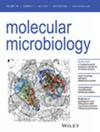Panduratin A不受mTOR抑制,通过AMPK激活诱导自噬,抑制宿主巨噬细胞中的结核分枝杆菌
IF 2.6
2区 生物学
Q3 BIOCHEMISTRY & MOLECULAR BIOLOGY
引用次数: 0
摘要
由结核分枝杆菌(Mtb)引起的结核病(TB)仍然是全球主要的卫生负担,特别是随着耐药菌株的日益流行。迫切需要通过替代机制起作用的新疗法。自噬是一种重要的细胞自主防御过程,它允许巨噬细胞降解细胞内病原体,如结核分枝杆菌,并作为宿主定向治疗的潜在靶点而受到关注。在本研究中,我们对中草药衍生化合物进行了高含量的成像筛选,以鉴定RAW264.7巨噬细胞中的自噬诱导因子。潘杜拉素A (Panduratin A, NPA)是一种天然化合物,具有诱导细胞自噬的作用。在低微摩尔水平下,NPA以剂量依赖的方式促进自噬液泡的形成。在巴菲霉素A1存在下,采用RFP-GFP-LC3双荧光法和免疫印迹法验证了其诱导自噬的作用。进一步的机制分析表明,NPA通过AMPK激活自噬,独立于mTOR抑制。重要的是,NPA显著促进细胞内Mtb清除,并增加Mtb与自噬体和溶酶体的共定位,其方式依赖于Beclin-1。这些发现强调了NPA作为巨噬细胞自噬抗菌反应的有效增强剂,支持其作为宿主定向辅助治疗结核病的候选药物的潜力。本文章由计算机程序翻译,如有差异,请以英文原文为准。
Panduratin A Induces Autophagy Through AMPK Activation Independent of mTOR Inhibition and Restricts Mycobacterium tuberculosis in Host Macrophages.
Tuberculosis (TB), caused by Mycobacterium tuberculosis (Mtb), remains a major global health burden, especially with the increasing prevalence of drug-resistant strains. There is an urgent need for new therapeutics that act via alternative mechanisms. Autophagy, a vital cell-autonomous defense process, allows macrophages to degrade intracellular pathogens such as Mtb and has gained attention as a potential target for host-directed therapy. In this study, we conducted a high-content imaging screen of herb-derived compounds to identify autophagy inducers in RAW264.7 macrophages. Panduratin A (NPA), a natural compound from Boesenbergia rotunda, was found to potently induce autophagy. NPA promoted autophagic vacuole formation in a dose-dependent fashion at low micromolar levels. Its autophagy-inducing effect was validated using RFP-GFP-LC3 dual fluorescence assays and immunoblotting in the presence of bafilomycin A1. Further mechanistic analysis revealed that NPA activates autophagy through AMPK activation, independent of mTOR inhibition. Importantly, NPA significantly promoted intracellular Mtb clearance and increased colocalization of Mtb with autophagosomes and lysosomes, in a manner dependent on Beclin-1. These findings highlight NPA as a potent enhancer of macrophage antimicrobial responses via autophagy, supporting its potential as a candidate for host-directed adjunctive therapy against TB.
求助全文
通过发布文献求助,成功后即可免费获取论文全文。
去求助
来源期刊

Molecular Microbiology
生物-生化与分子生物学
CiteScore
7.20
自引率
5.60%
发文量
132
审稿时长
1.7 months
期刊介绍:
Molecular Microbiology, the leading primary journal in the microbial sciences, publishes molecular studies of Bacteria, Archaea, eukaryotic microorganisms, and their viruses.
Research papers should lead to a deeper understanding of the molecular principles underlying basic physiological processes or mechanisms. Appropriate topics include gene expression and regulation, pathogenicity and virulence, physiology and metabolism, synthesis of macromolecules (proteins, nucleic acids, lipids, polysaccharides, etc), cell biology and subcellular organization, membrane biogenesis and function, traffic and transport, cell-cell communication and signalling pathways, evolution and gene transfer. Articles focused on host responses (cellular or immunological) to pathogens or on microbial ecology should be directed to our sister journals Cellular Microbiology and Environmental Microbiology, respectively.
 求助内容:
求助内容: 应助结果提醒方式:
应助结果提醒方式:


